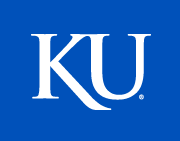Osher Lifelong Learning Institute

Courses
Current Events
Courses & Events
Ethics and Sports
Instructor Bio: Sarah Rosenson holds a bachelor's degree from Georgetown University, a law degree from the University of Pennsylvania and a master's degree in Jewish Studies from the Spertus Institute. She practiced law, and then taught classes on ethics, philosophy and world religions at a private high school. She currently teaches adults both in-person and on various online platforms, including several Osher classes.
February 19, 2026 to March 5, 2026, Online
German Settlements and Culture in Kansas
German is the most prevalent language after English and Spanish spoken at home in 77 counties in Kansas. Since 1854, thousands of German-speaking immigrants have sought better lives here, including Pennsylvania Dutch, Volga Germans, Mennonites, Austrians and Swiss. German churches dot the prairie, and some rural Kansans still speak a dialect of German.
Instructor Bio: William Keel, Ph.D., is a professor emeritus of German at KU, having taught the history and culture of German settlements in Kansas and Missouri.
May 20, 2026 to June 3, 2026, Beacon Mental Health (Clay County)
Immortalized: Sports Museums and Halls of Fame
Instructor Bio: Andrew Stockmann is curator of exhibitions at the Watkins Museum of History in Lawrence. He grew up visiting baseball stadiums and museums with his family, which sparked his love for history. Andrew is from Liberty, Missouri, and is a 2024 graduate of the museum studies master's program at the University of Kansas and holds a bachelor's degree in sport management from Wichita State University.
June 10-24, 2026, St Andrews Classroom
The Coming Struggle Over Social Security
Instructor Bio: David Ekerdt, Ph.D., is Professor of Sociology and Gerontology at KU, specializing in work and retirement, focused on the changing role and practice of retirement. He is the editor-in-chief of the "Macmillan Encyclopedia of Aging".
March 5-19, 2026, KU Edwards Campus, Regnier Hall & Online
The U.S. Naturalization Process & the Path to Citizenship
Instructor Bio: Anita Tebbe is a retired professor in the legal studies department at Johnson County Community College. She earned an undergraduate degree in history, a graduate degree in education and a law degree. Anita is a Kansas-licensed attorney and has more than 40 years of teaching experience at the high school and college levels.
June 11-25, 2026, KU Edwards Campus, Regnier Hall & Online
The Women of the Supreme Court
Instructor Bio: Marlene Katz, a University of Missouri graduate, was an adjunct professor at UMKC, where she taught English and literature. Marlene has a 28-year teaching career and has been involved in storytelling for 20 years. Women in history is her specialty and Marlene has performed in a five-state area and has lectured for various groups, often in costume and speech of the character she is portraying.
Monday, March 23, 2026, KU Edwards Campus, Regnier Hall & Online
The World Comes to Lawrence: U.S. Immigration and Refugee Stories
Instructor Bio: Chuck Olcese is president of Assistance for Immigrants and Refugees, a nonprofit organization in Lawrence, Kansas, dedicated to the resettlement of refugees and other immigrants in the area. He has trained in intercultural communication and presented workshops on these skills at numerous institutions. Chuck and his wife were among the first Americans to teach English in China from 1985 - 1986. This experience launched his career in international student services in higher education - a 33-year career spanning four institutions in four states. Before his retirement from the University of Kansas, Chuck founded Lawrence Interfaith Refugee and Immigrant Ministry (LIRIM), a communication network to facilitate assistance, advocacy and awareness of immigrants and immigrant issues in the area. Since his retirement, he helped co-found AIR in 2023. AIR has resettled three families in the Lawrence area since November 2024 and continues to help connect Lawrence residents with their new neighbors from Afghanistan and Venezuela, as well as to advocate for immigrant rights.
March 26, 2026 to April 9, 2026, St Andrews Classroom
The World Cup Comes to KC
Instructor Bio: Jason Booker is the deputy director for external affairs and revenue generation at the University of Kansas and the sport administrator for the Kansas Women's Soccer program. He recently served as the chair of the Kansas City Sports Commission where he was part of the team to bring the 2026 FIFA World Cup and several NCAA Championships to the Kansas City region. He received his undergraduate degree in sports management from KUand his master's in sports administration from Wichita State University.
Ruth DeWitt is the manager of external affairs and sales operations at ExploreLawrence where she works to bring visitors, groups and events to Lawrence. Prior to her current role, Ruth was the communicationsmanager in the School of Public Affairs and Administration at the University of Kansas and the marketing director at the Lawrence Arts Center. Ruth has worked closely with the Kansas City Sports Commission and the FIFA World Cup 26 Kansas City committee to ensure that fans, teams and visitors have a superior experience during the matches.
Tuesday, April 21, 2026, St Andrews Classroom
World Issues Discussion Group: Artificial Intelligence
Instructor Bio: Charles "Chick" Keller is a retired senior executive and retired professor. He worked 15 years each at Sprint and Black & Veatch in strategic planning and strategic marketing, rising to VP level both times. In 2000, he began a career as a professor in the University of Kansas engineering management program where he taught finance and strategic planning.
May 20, 2026 to June 3, 2026, KU Edwards Campus, Regnier Hall & Online

 Cart (0)
Cart (0)

